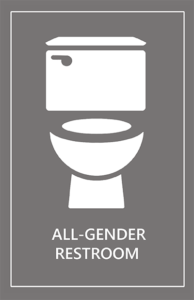Seattle University Public Safety Survey and Micro-Community Policing Plans; New Library Restroom Policy; RainWise Program Info & Eligibility
Seattle University Public Safety Survey and Micro-Community Policing Plans
Seattle University recently released their 2017 Seattle Public Safety Survey. The report includes analysis of community perceptions of public safety citywide, by police precinct, and by Micro-Community Policing Plan (MCPP) area.
There are 14 micro-communities for the Southwest Precinct: Alaska Junction, Alki, Commercial Duwamish, Commercial Harbor Island, Fauntleroy, High Point, Highland Park, Morgan Junction, North Admiral, North Delridge, Pigeon Point, South Delridge, South Park and Westwood/Roxhill/Arbor Heights.
Micro community policing plans were developed in conjunction with community residents according to the distinctive needs of each community, and are used in conjunction with crime data and community perceptions; implementation began to be used in January 2015.
You can find the MCPP area for where you live at the MCPP map website. You can see the priorities for each residential MCPP here by selecting Precinct and MCPP Neighborhood.
The Seattle University survey includes listing of the top five responses to survey questions, and open-ended narrative answers about public safety. Additional survey questions include: knowledge of the MCPP; fear of crime by day and night; police legitimacy; and social organization. The survey also includes demographic information, and analysis of social cohesion within communities.
The section on the Southwest Precinct begins on page 53 (page 54 of the pdf). The top public safety concerns in the SW Precinct are lack of police capacity; car prowls; unsafe driving/speeding; residential burglary, and auto theft. Themes in narrative comments include police capacity; public order; property crime; traffic issues, and homelessness public safety/public health. Each of the 14 MCPPs have separate survey results. The top five public safety concerns and narrative comments are listed for each MCPP.
Regarding the top community concern, police capacity, I’ve voted to add over 100 officer patrol positions since 2016; I am also interested in hearing from the police chief appointee about her plans to increase deployment of patrol officers. A letter from the co-chairs of the search committee to the Mayor raised the issue of officer deployment, noting that ‘less than half of all sworn officers are assigned to patrol, a percentage that is inconsistent with a national practice of 60%.” I submitted a question about this as part of the Council’s review process.
In addition, the Council has approved funding to re-establish the Community Service Officer (CSO) program. CSOs are unsworn officers who can prioritize community services associated with law enforcement such as crime prevention and non-emergency tasks, and free up SDP officers for 911 response.

Last week my office received a letter from the Seattle Public Library announcing that on June 27th the Seattle Public Library Board of Trustees unanimously approved a new library restroom policy. As you may remember there was an incident last year at the library where a transgender library patron was denied access to the Central Branch Library’s family and ADA accessible restroom in the children’s area.
According to the new policy, this family and ADA restroom, located in the Central Library’s children’s area, is now available to all library patrons. The Seattle Public Library maintains its stance that patrons are welcome to use the restroom based on the gender they identify with but have heard feedback from patrons who do not feel comfortable or safe using the library’s multi-stalled, gendered restrooms. In addition to the children’s area restroom the Central Library now has a single occupant public restroom located on the third floor.
As a reminder, in August of 2015 the the Seattle City Council passed Council Bill 118455 amending the Seattle Municipal Code to clarify the right of individuals to use gender-specific facilitates consistent with their gender identity and adding a new Chapter 14.07 to Seattle’s Municipal Code providing for all-gender restrooms in City-controlled buildings and places of public accommodation. You can find more information about the City’s practices and policies related to all-gender restrooms at the Office for Civil Rights Gender Justice Project webpage.
RainWise Program Info & Eligibility
In order to help prevent flooding, reduce pollution, protect property, and to help provide water for summer irrigation Seattle Public Utilities offers a rebate program called RainWise. In the program, eligible property owners manage stormwater by installing rain gardens and/or cisterns on their property. The rebate can cover the full cost of instillation, but you must live in an eligible area.
Click here to see if you are eligible for a rebate. Additionally, you can sign up here for a webinar to learn about the program and rebates. The Webinar is scheduled for Wednesday, August 1 from 7:00 p.m. to 7:45 p.m.
Posted: July 27th, 2018 under Councilmember Herbold, Homelessness, Libraries, Police Department, Public Health
Tags: 2017 Seattle Public Safety Survey, micro-communities policing plans, rain gardens, RainWise, restroom policy, Seattle Public Library, Seattle University Public Safety Survey, stormwater

